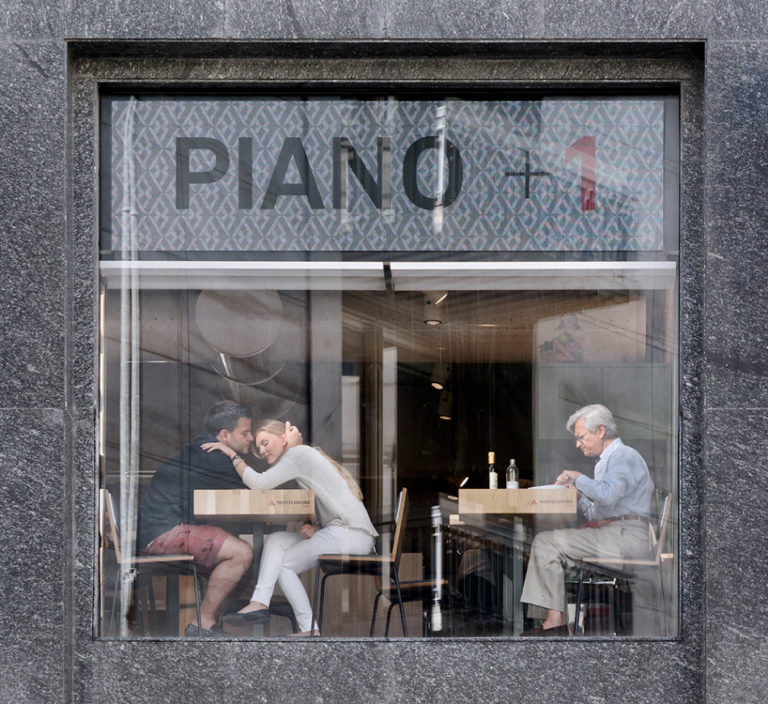The Independent Group’s vacuous pseudo-populism is the last thing we need

Antonio Gramsci once wrote that when the masses become alienated from the traditional political parties that once represented them, we are left in a “delicate and dangerous” situation, vulnerable to “violent solutions… represented by charismatic ‘men of destiny’.”
Reflecting on those words today, penned whilst the Italian philosopher and political theorist was imprisoned under Mussolini’s fascist dictatorship, they feel strikingly relevant. Against a backdrop of post-crash financial hardship, media-fuelled xenophobia, and a total lack of trust in politicians, we have bared witness to the rise of a hateful far-right populism characterised by anti-elite attitudes. Thankfully, here to save us in this “delicate and dangerous” situation is Chuka Umunna and The Independent Group (IG)—who seek to revolutionise politics by, erm, reverting back to the vacuous, technocratic centrism that got us here in the first place.
Together, the members of the IG—bound together under the slogan “politics is broken. Let’s fix it.”—share voting records adorned with the support of savage cuts to welfare in the name of austerity, harmful anti-immigration policies, and the privatisation of public services, as well as opposing investigations into (and voting for) the Iraq war and opposing proposed sanctions on arms sales to Saudi Arabia. Maybe someone ought to have told Chuka and Co. that it might have actually been them and their ilk that ‘broke’ politics in the first place.
In an interview with the New Statesman, Chuka positions the IG as a political group concerned more with a supposedly “populist offering” as opposed to the politics of left-vs-right and “class and ownership.” So, what is it that they actually stand for? Well, not a lot by the looks of it. Save for their shared support for a People’s Vote and the obvious desire to keep Corbyn away from Downing Street at all costs, there are no official discernible policies, just an ambiguous set of ‘values’ listed on their website and relentless soundbites constantly reinforcing the fact that they’re supposedly free from any political ideology, left or right.
In these increasingly polarised and hostile times, it may feel easy to long for a supposedly ‘sensible’ and ‘evidence-based’ centre-ground politics. Yet, such a wish neglects the fact that we live in a time clouded by the ascent of national-populism, embodied in the Farages, Robinsons and Hopkins’ of the world, and made evident in Brexit and Trump, and that the emergence of that is a direct by-product of the alienating and ‘post-political’ nature of neoliberalism that The Independent Group represents through-and-through; Offering nothing more than a redux of the (barely) watered-down Thatcherism that New Labour constituted.
By ‘post-political’, I am making reference to the recent work of Belgian political theorist Chantal Mouffe who, in her 2018 book For A Left Populism, looks at the current brand of right-wing populism as a crisis of the project of neoliberalism. Her argument goes along the lines that our current and long-standing socio-economic system is ‘post-political’ and ‘post-democratic’ by nature—the belief that ‘there is no alternative’, made a reality with a dominant two-party political system within which trust and democratic participation had been eroded due to both parties being barely distinguishable from each other.
Partner that mass-disenfranchisement with the devastating effects of austerity that followed the 2008 crash and it’s not hard to see why we’re witnessing the rise of populist anti-establishment resistances. The argument that there is no alternative is hardly as clear-cut in the political landscape of today, though. For the first time in decades, a transformative democratic socialist agenda is in the mainstream once again. However, as Gramsci and many others foreshadowed, these anti-elite antagonisms have also been manifested into something hateful, violent, and xenophobic by the far-right.
That being said, to think that a return to some sort of bland ‘anti-ideological’ centrist politics will fix the polarisation we face today is a major misreading of the situation, and will do nothing to address the causes of our current problems. Having seen what happens when free-market economics is left to its own devices, even when delivered alongside lacklustre social policies, the left is unlikely to retreat and settle for the vapid centrism that the Independent Group are offering. And on the contrary, to think that a second referendum—the staple of the IG’s current one-note policy programme—will do anything but outright fuel the rise of the far-right would be staggeringly stupid.
The political economist Francis Fukuyama famously said that following the fall of Soviet communism and the spread of Western capitalism across the globe we have reached ‘the end of history’ and passed the point of no return. That was obviously never really true. But if the Independent Group gets their way, then history will certainly be hellbent on repeating itself, at least.




